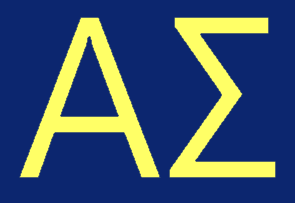Triangular Fibonacci Numbers
Here's a problem that I originally thought about back in 2013 during my teacher training year. How many numbers are there which are both triangle numbers and fibonacci numbers? Just as a quick recap, triangle numbers are ones where you can arrange them in a nice equilateral triangles like this:
Notice that the general term we can get by finding the sum of numbers from 1 to n which is an arithmetic series with a sum of n(n+1)/2. The first few terms are 1, 3, 6, 10, 15, 21, 28, 36, 45, 55, 66...
Fibonacci numbers start with 1, 1 and then you find the next term by adding the previous two. So we get 1, 1, 2, 3, 5, 8, 13, 21, 34, 55, 89...
You may notice that there are a few terms in common: 1, 3, 21 and 55. That seems quite a high rate, but we are cheating a bit by only looking at the first few terms. Both sequences get less and less common as they go along, so it is not surprising that we had two 1 digit hits. But the question is: are there an infinite number of numbers which appear in both lists? It seems plausible, because many things that get less dense along the number line still manage to be infinite in number, such as primes.
After trying to find the term after 55 manually, I quickly gave up. Both series quickly get bigger (triangle numbers at a quadratic rate and fibonacci numbers at an exponential rate) and so it becomes a problem for a computer. This was the very first program I made on python (on a raspberry pi) and it couldn't find any matching terms past 55 either. This hinted that maybe they were rarer than they first looked; maybe even finite.
In general problems of the form "how many numbers have both this property and this property" are either trivial or very very difficult. Examples of trivial ones would be, how many even prime numbers are there, or how many odd square numbers? They are trivial because the answer is usually close to zero or easily verified to be infinity. How ever, change them just a bit to ask how many odd perfect numbers or prime fibonacci numbers and we get something on the cutting edge of mathematics. I know that the first of those is unsolved and I have no idea about the second (although I would guess at infinite).
I tried a lot of things, but I didn't get anywhere close. In the end someone sent me a paper from 1987 which you can read here (it quickly goes over my head). The gist is that the proof gets quite case based, but it turns out that there are a finite number of triangular fibonacci numbers and even more surprisingly there are only the original four!
Bonus fact that I came across when looking at this. The only two numbers that are square and fibonacci are 1 and 144. That proof was from 1964 and was actually used as a result in the above proof.







